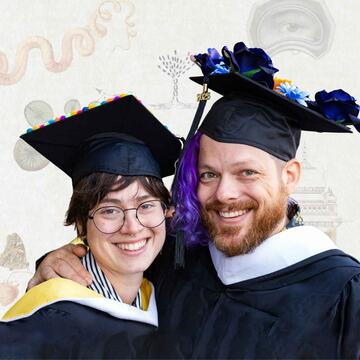
Alzak Amlani
Emeritus
Integral Counseling Psychology
Counseling Psychology
School of Professional Psychology and Health
Pronouns: he/him
Email: aamlani@ciis.edu
Phone: 415-575-6115
Biography
Alzak’s teaching and clinical work are informed by his own psychospiritual journey since the early 80’s. Growing up in Uganda, East Africa among various cultures, languages and spiritual traditions and then becoming a refugee in 1972, under Idi Amin’s regime set the stage for life-long curiosity and integration of various identities and world views. He has studied Spanish and worked with migrant children from Mexico as a tutor and counselor. After being drawn to humanistic-existential approaches, Alzak met the Jungian author/analyst Robert A. Johnson in 1990. Their connection grew into a friendship and mentoring for over twenty years and a trip to India together to explore Indian thought, culture, spiritual practices and Ayurveda. Subsequently he has taken courses on Jungian psychology primarily through the CG Jung Institute in SF and undergone many years of Jungian analysis.
Since 2002, Alzak has been a student of the Diamond Approach with A.H. Almaas and Karen Johnson. He integrates the practices of meditation and embodied and open-ended inquiry into various levels of self and reality into his teaching and clinical work. Being a lover of the natural world Alzak has been to various outdoor Buddhist retreats in California, Utah and Colorado. He incorporates nature-based practices into his spiritual life and views and is compelled to teach about eco-psychology, climate justice, animal ethics, and conscious eating.
Education
Ph.D. Institute of Transpersonal Psychology (Sofia Univ.)
B.A. UC Santa Cruz
Publications
"Heart Work,” A Book Review of “The Heart of Higher Education,” by Palmer and Zajonc. In the Jung Journal: Culture and Psyche, Summer 2012
“Being Indian in America,” Featured Article in India Currents Magazine 2012
“My Friend/My Mentor,” Article in White Crane Journal about my relationship with Jungian Analyst, Robert A. Johnson 2004
“From India to Africa to Buddha: Weaving a Path Home,” In Queer Dharma, edited by Winston Leyland 2000
“Internal Events and Archetypes”: In Transpersonal Research Methods for the Social Sciences, by William Braud and Rosemarie Anderson 1998
